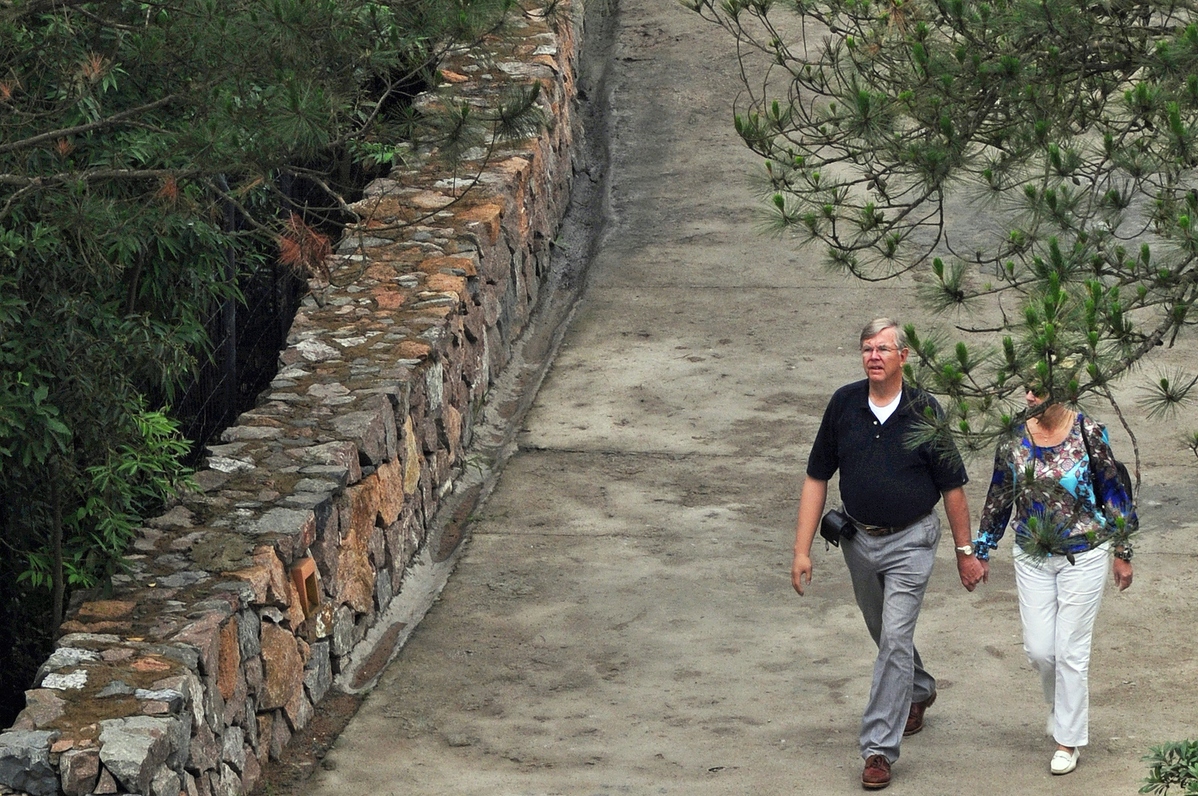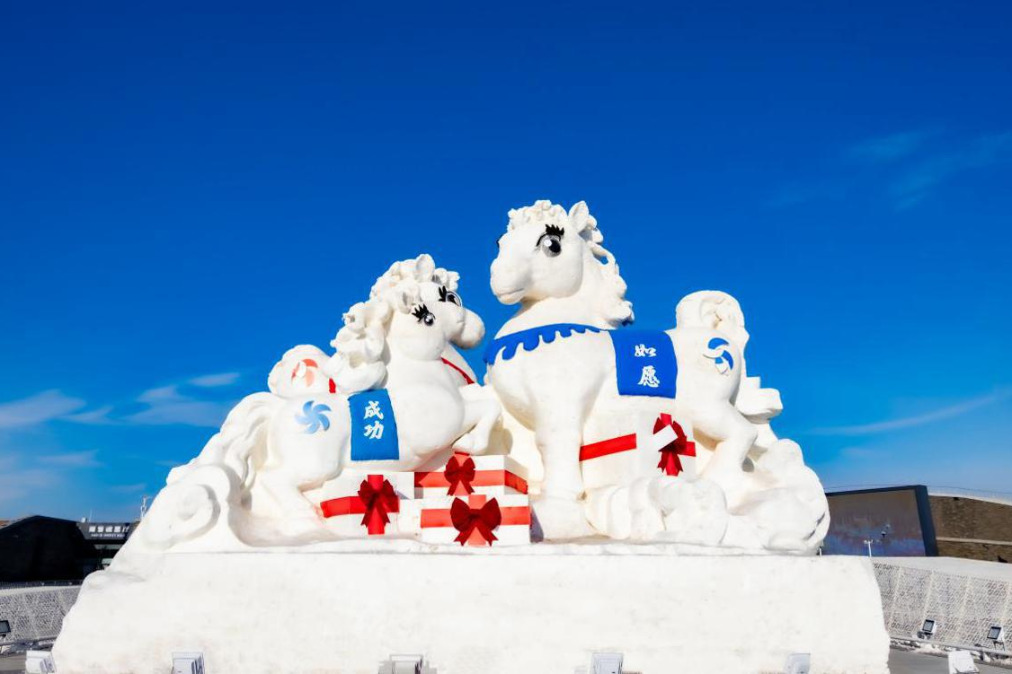High-end getaway 'is worth it'


Green GDP
Zhu Yan said a room at Naked Stables-which has 121 rooms-now makes a profit of 1 million yuan per year. Naked Castle provides 95 rooms for guests, and it will take time to be as profitable as Naked Stables, Gao said, but he is confident in the castle's future.
Gao's story encourages foreigners to rent houses and start bed-and-breakfast businesses on Mogan Mountain. Nowadays, if you take a ride in Laoling, you'll see a continuous row of well-decorated houses lining either side of the country roads.
"Apart from local people, the tenants of the village households also include foreigners and white-collar workers from big cities," Wang said.
A British man, Mark, has run a cafe on the mountain for years and coined the English name "hill stations" to refer to the homestay venues. The name stuck.
Last year, there were more than 150 hill stations, receiving about 1.2 million tourists a year. They brought in revenues of 1 billion yuan, generating 20 million yuan in taxes for local government.
The hill stations in Deqing have some common characteristics. In terms of construction, all of them use energy-saving, low-carbon concepts. All advocate a green lifestyle. Guests are required to save water and electricity. There are no famous scenic spots. And the buildings and management of the homestays integrate both Eastern and Western cultures.
In November 2016, hill stations in Deqing were recognized as an ecologically protected service-or eco-origin-product by the government. Song Yuqin, a professor of environmental sciences at Peking University, was on the assessment panel at the time.
"Deqing's hill stations are a unique creation in the field of rural tourism in China, and they are a good example for the industry," Song said.
In his eyes, as China attaches more importance to environmental protection, the environment has increasingly come closer to people's daily lives.
"An eco-origin product not only means ecological agriculture but also good service related to a good environment. The certification is reviewed every three years, and Deqing has to continue to maintain its service quality and cultural diversity," Song said.
To promote hill station development in Deqing, the local government has taken a series of steps over the past decade. The authorities not only supervise the management and services of the homestays, but also mete out preferential tax and land policies to promote the industry.
"We will maintain the hill stations' prosperity through scientific planning and strict management, and keep their bench mark status in China's homestay industry," Wang said.
A win-win model
About 80 percent of the employees of the two Naked resorts on Mogan Mountain are local residents.
"More and more young people are hunting for jobs as the hill station business thrives," Wang said.
Xu Aojie, a Deqing resident in her 20s, has been at Naked Stables for almost two years. She graduated from a university in Hangzhou, majoring in visual design in 2016, and now works as a potter at the resort.
"I am satisfied with the pay and can learn something here. Although we are not traditional five-star hotels, we provide an abundance of entertainment activities, such as pottery," Xu said.
In Deqing, the farmers' average annual personal income is 30,000 yuan, nearly three times the national average. But the residents of Mogan Mountain earn much more.
"They can rent out their houses and land, work in a hill station and sell agricultural products," said Yang Liping, director of Deqing's Culture and Tourism Bureau.
Women in their 50s can earn 3,000 yuan a month as cleaners. A housekeeper can earn 5,000 yuan per month.
Ten years ago, the rent for a house covering an area of 150 square meters and a building of 300 square meters, was only 8,000 yuan a year. Now, the same house goes for 50,000 yuan with a guarantee of 20 years.
"When the tenancy term expires, farmers can get their houses back. In the past, they made a living selling bamboo, which is an ornamental plant now," Yang said.
According to the Ministry of Culture and Tourism, rural tourism attracted 2.5 billion visitors last year, with consumption reaching 1.4 trillion yuan.
- Defense spokesman: PLA drills around Taiwan justified
- Chinese fantasy animation hits Vietnamese theaters amid holiday surge
- BBC documentary reveals Guangdong's wild side
- Hangzhou 'Bunny Officer' goes viral for gentle traffic management
- From lab to life: humanoid robots' 'coming-of-age' year
- Video of PLA's drills around Taiwan Island released





































